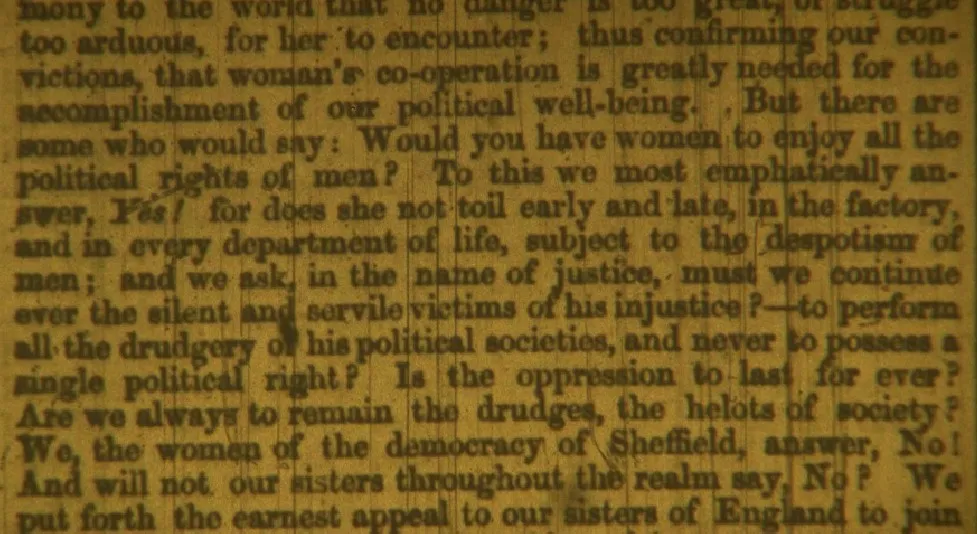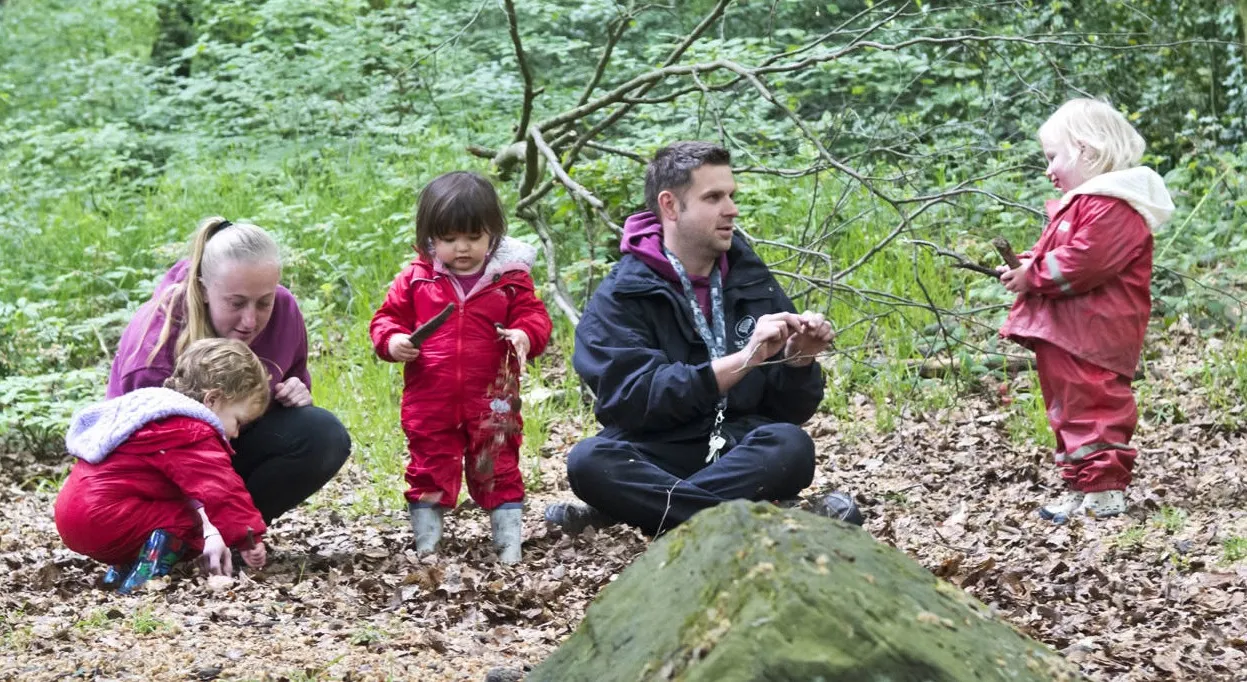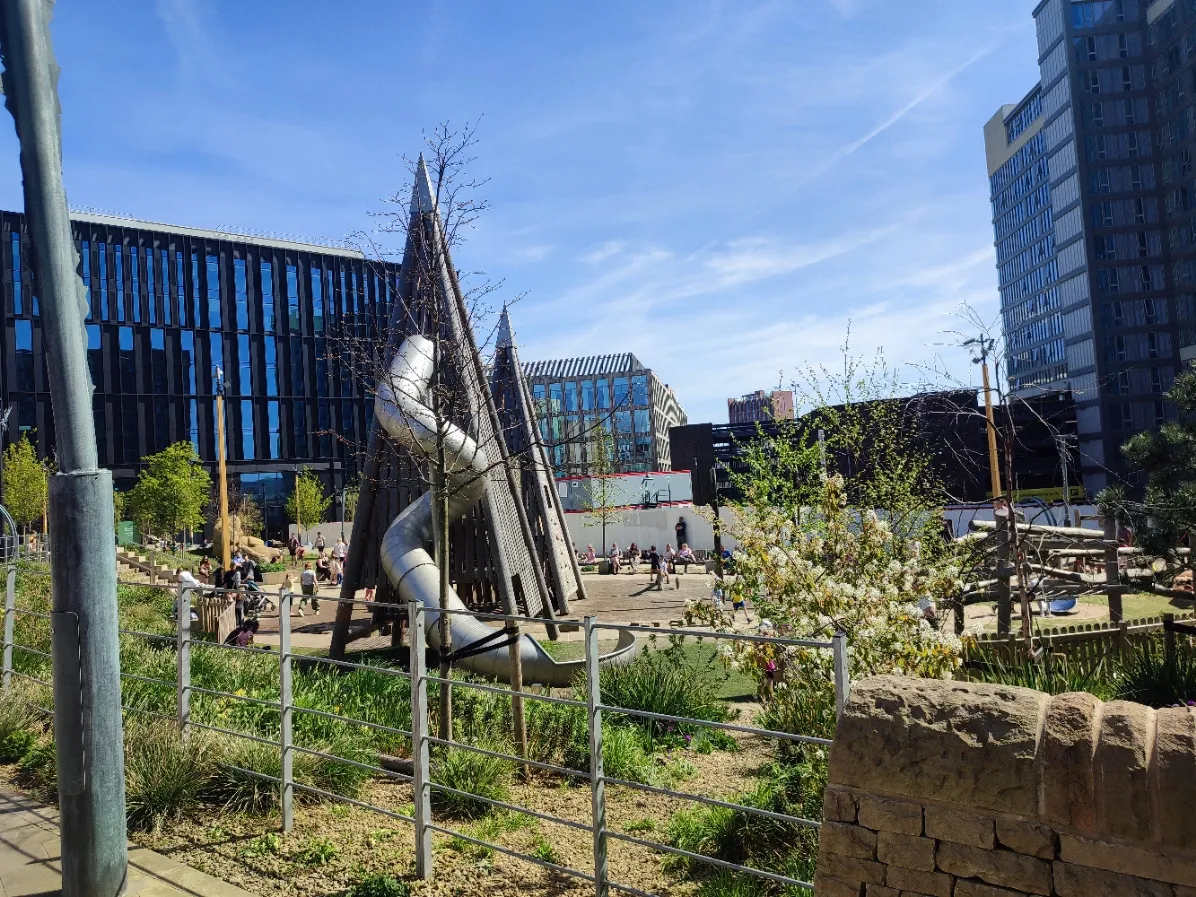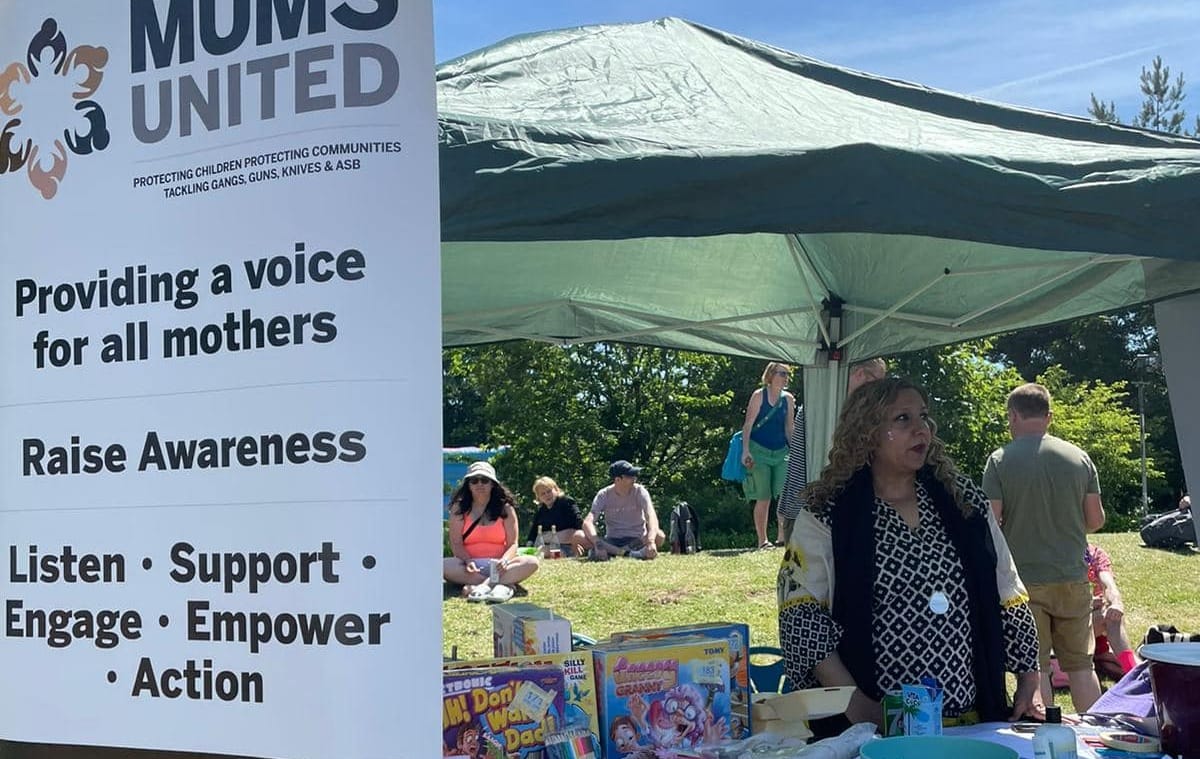For Sahira Irshad, the 45-year-old founder of anti-knife crime charity Mums United, the straw that broke the camel’s back was actually the snapping of a bike lock. Not the crime itself, which was relatively minor, but her own reaction to it — or rather lack of one. About eight years ago, at around three in the afternoon, she remembers walking with her young son just off London Road when they passed two teenagers stealing a stranger’s bike. “Everyone was just walking by, they weren’t even turning their heads because they didn’t want the confrontation,” she says. She did the same. “My son asked me: ‘Mum, why did you just walk past? Is it ok for kids to do that?’ and that made me stop and think. What are we doing here?”
Sahira, who grew up in Sheffield, had moved back up north precisely because she wanted a safer place to raise her two young children. She tells me where she had been living, Forest Gate in east London, was rife with “post code wars, knife crime and young people fighting constantly,” whereas she associated her old home with peace and comfort. “When I moved, I realised that the problems that had made me leave London were happening here too,” she says. “I was seeing young people dealing and children as young as 9 or 10 breaking bikes.” She was terrified her two children might grow up and get sucked into the same behaviour. After speaking to other mothers in her community, it was clear she wasn’t the only one.
South Yorkshire Police had noticed too. The force’s dedicated Armed Crime Team — which formed in 2020, the same year Mums United incorporated as a charity — made Nether Edge, Sharrow and Heeley its “main focus” for the first few years of its existence. Though this team focuses on tackling gun crime, its head officer Detective Superintendent Jamie Henderson previously told The Tribune such incidents are primarily committed by the same “OCGs”, or organised crime groups, that are behind many fatal stabbings in the city. When we spoke in the summer of 2023, DSI Henderson was keen to celebrate the “massive reductions” in gang activity along the London and Abbeydale Road corridor, although Sahira points out the area’s problems have far from disappeared. In February 2024, police shut down a “prolific drug dealing hotline” operating out of the neighbourhood, which had been in contact with more than 2,000 phone numbers.
These days, it’s hard to imagine anyone, anywhere in the city, describing gangs or youth violence as an issue that’s brushed under the rug. Certainly some groups, such as Aspire Boxing Club in Arbourthorne, have been raising awareness about the problem for decades. However, when Sahira first began organising, she felt many in her community were reluctant to acknowledge the scale of the problem. “It runs parallel to our everyday lives but, back then, no one was really talking about it.” She and the other mothers agitating for change sometimes felt “shut down by the local community, the men that are running the mosques or the local institutes.” (It’s worth noting this resistance was not universal, with Makki Mosque actively working with the group in 2019.)
Sahira can sympathise with the reasons why some were reluctant to address it. “Knife crime, exploitation, all these issues are very sensitive,” she says. “People don’t want to talk about them, until it comes and slaps them in the face.” For marginalised groups, such as her own Pakistani and Muslim community, it can be even harder. “Whenever anything bad happens, Islam gets brought into it, ethnicity is brought into it. It’s very difficult for a community to confront an issue if they’re always singled out.” However, in a 2020 article for The Star written by Tribune founder Dan Hayes, she rejected the idea that the area’s problems were down to a small minority. “It is not just a few people, it is so deeply embedded in our communities,” she said at the time, adding that young children “see dealing in their own homes or by their cousins and it becomes normalised”.
Reading the charity’s 2023 report, it’s not difficult to see why Sahira’s approach might ruffle feathers. In a lengthy section on the “root causes” of youth criminality — which stresses that the issue is “complex and multifaceted” — it lists strict fathers using physical discipline among the factors that could push young men towards gangs. The report states that some young men the charity works with “revealed that their fathers would often speak about the same struggles they faced” and yet “instead of breaking the cycle, [the fathers] would perpetuate it by replicating the same strict and sometimes violent parenting methods they experienced”.
This is a somewhat unfashionable argument for an anti-knife crime charity to make. Largely in reaction to those who unfairly place all responsibility for youth crime on “bad parenting”, most charities focus on creating safe places for young people to socialise and teaching them new skills, in the hopes that better career opportunities will lead them to be less swayed by the fast profits of organised crime. While Mums United also does a lot of this work, a “pivotal role” is played by the Strengthening Families Strengthening Communities programme, which promotes “positive parenting practices”.
The 13-week programme is a hard sell even for the adults that show up, Sahira tells me. “Everyone comes in thinking we can’t teach them anything they don’t already know,” she says. But the programme’s success is how it helps parents to understand their own experiences in childhood. “When you have so much anxiety or trauma that you’ve not dealt with,” Sahira says, “it’s easy to overlook certain things your child might be doing, because you’re consumed with your own hurt and low self-esteem.” The hardest part is often getting parents to open up, which Sahira encourages by talking about her own experiences. “Then they realise it’s not about us teaching them, it’s about us as a group learning together. When you don’t place any judgements on them, the barriers can come down.”
Though the idea for Mums United germinated in her own community, Sahira quickly realised that “the lure of money doesn’t see race or gender” and expanded the charity’s focus from Nether Edge and Sharrow to encompass all of the city’s most deprived neighbourhoods. This is why, when Mums United opened its community centre a year ago, it chose a property on the Wicker in order to be as centrally located as possible. The building is home to a charity shop — the proceeds of which helps cover their rent and bills — and provides free breakfast and lunch for vulnerable people every day. Though expanding their remit means the united mothers of Mums United are now a “diverse group of women from every nationality and ethnicity,” Sahira says there has been no need to adjust their approach to fit mothers from different demographics. “We always think our cultures are so different but, when you actually sit together in a room, you’ll find we have so many things in common,” she tells me. “The issue we have is that we don’t talk to each other enough, that’s where the stereotypes seep through.”
There’s perhaps no better proof of this claim than David Wright. David, who Sahira believes was in his 70s when he died last December, was a “very conservative” man from Maltby, near Rotherham, who first popped into the Mums United community centre for a free cup of tea. “He came into our centre not liking any of us,” Sahira says. “He was very much stuck in his ways and he’d come in and sit and moan about the current state of society.” Despite his disapproval, David kept coming back, appreciating the company as someone who lived alone. Eventually, he was travelling from Maltby to the centre every day except Sunday. “He saw the different cultures and eclectic characters using the centre,” Sahira says, “and he became part of our community.”
It probably helped that David’s eventual affection for the charity was genuinely reciprocated. When I visited the Mums United centre earlier this week, 34-year-old volunteer Mercy Joseph, who was in the middle of getting her dreadlocks touched up by a friend, still seemed devastated by his death. She tells me she cried when she heard the news and remarks that she wished he’d lived in Sheffield, so it would have been easier for people from the charity to check on him. When David fell ill in his flat, it was Mums United that called the emergency services, having grown worried after he didn’t show up for three days in a row.
Like Sahira, Mercy first got involved with Mums United due to an interest in her own community — specifically to meet other Nigerian women she could speak to for her dissertation — but quickly found her duty of care had expanded to encompass the whole city. For example, she wasn’t actually supposed to be manning the till that day, having stepped in last-minute, but couldn’t bear the thought of the centre not being open for the homeless people that eat there. “Four people had breakfast here today and two people had lunch,” she tells me. “If this place was closed, where would those people have got their meals from?”
It’s clear Mercy is someone who feels a personal obligation to help other people to an extent that could make working for a charity with limited resources very disheartening at times. At the start of this year Mums United was planning to visit local secondary and primary schools to talk about knife crime — a campaign she says has yet to materialise due to a lack of funding — and that made it even more upsetting for her when Harvey Willgoose was killed at All Saints Catholic High School the following month. “I felt so bad and I wish we had gone there,” she says, with genuine sadness, “because maybe it would have stopped that child being injured.”
At a time when some charities are having to close their doors, and with only two employees and a small pool of volunteers, it must take a lot of work to keep the organisation afloat. “It does get a bit overwhelming,” Mercy admits, especially when their work seems to go unappreciated. She remembers a period when those stopping by for free meals grew frustrated at being served pasta bake multiple days in a row, which was the only thing they could afford to offer at the time. “We try to communicate to these people that we are a charity and what we’re giving them is what we’ve got,” Mercy says, “but then you get some people saying we should close this place down if we can’t afford to give them food.” She tries not to let it get to her. “I just tell myself that people will always have an opinion and you just have to do your best.”
These also aren’t the only people that sometimes dislike the way that Mums United operates. Shortly after Sahira first started organising, someone threw a brick through the window of her family home, which narrowly avoided hitting one of her sons. In May 2019, one of the charity’s youth workers, who was encouraging young people in Sharrow away from gangs, was stabbed in the back of the head by 19-year-old Bassan Khan, who was jailed for two years and six months over the attack. “He didn’t want us around as we were getting in the way of his business,” the youth worker, who wished to remain anonymous, told The Star at the time, “but the attack won’t stop me working in these communities.”
“There was a period of time where I was being followed and harassed by the local gangs,” Sahira tells me, as well as receiving abuse from “women who are doing very well from the drug trade,” both in person and online. “Even to this day, it’s still happening quite regularly.” While she’s always stressed that the work she does is not about fighting the gangs but about improving the lives of children, she acknowledges that “if we do it right” it will inevitably impact how many young people they are able to recruit. “The youth will grow up not wanting to live the way that their relatives, fathers or brothers have.” It’s obvious she’s uncomfortable talking about the charity’s more proactive critics, partly to avoid painting even more of a target on her back, but also because she doesn’t want to give them the satisfaction. “I just get on with it,” she tells me. “I can’t let them silence the work we do.”

Comments
How to comment:
If you are already a member,
click here to sign in
and leave a comment.
If you aren't a member,
sign up here
to be able to leave a comment.
To add your photo, click here to create a profile on Gravatar.







